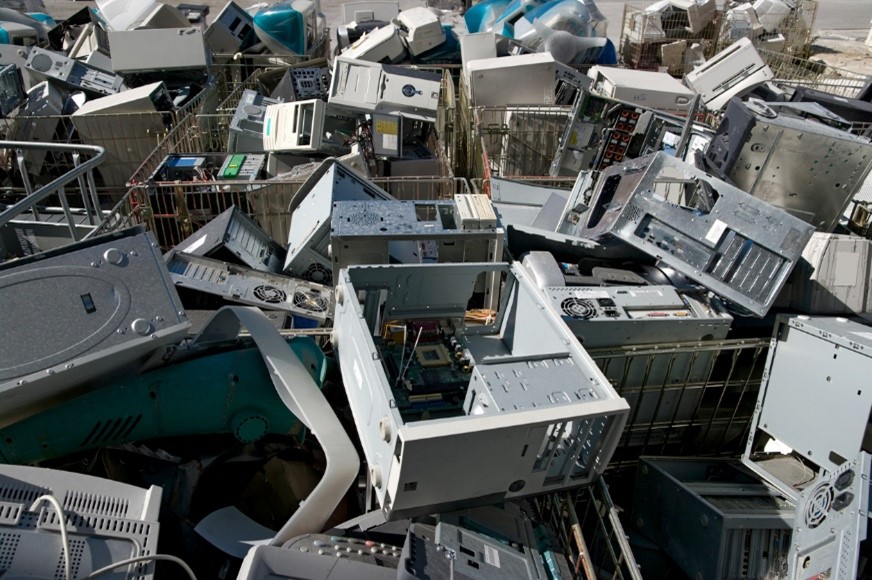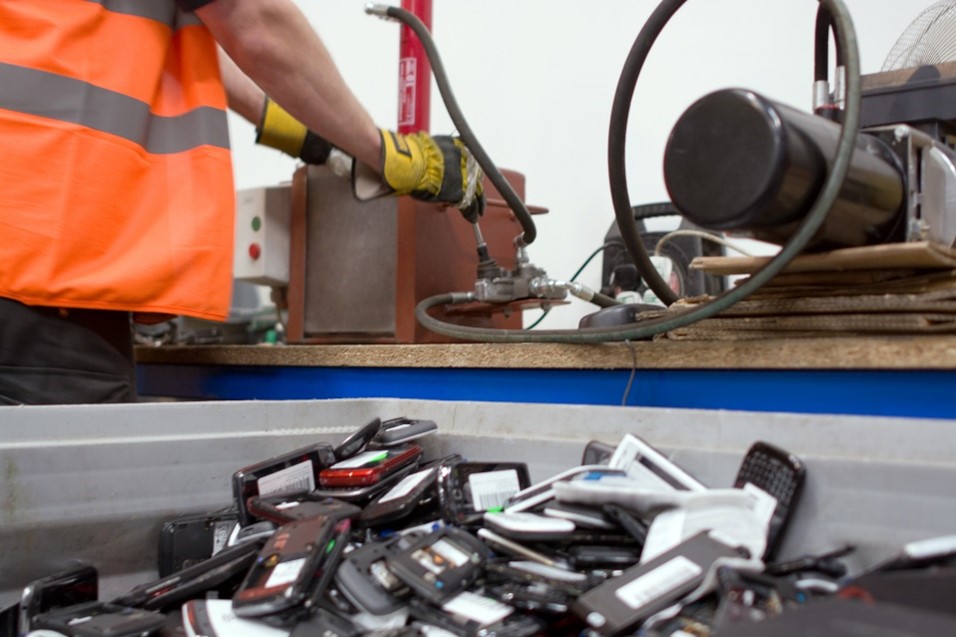The Role of E-Waste and IT Disposal in Achieving Net Zero 2050

With many businesses working toward improving their environmental impact, monitoring the UK’s Net Zero 2050 initiative and other associated strategies is vital to maximise the positive impact you have. One notable area where businesses make the largest difference is how they dispose of their unwanted electrical equipment.
Read on to discover the importance of sustainable disposal and how we help businesses achieve their carbon-neutral goals.

What is UK Net Zero 2050?
This bold strategy sets out specific targets to attain net-zero emissions. Transport, power, buildings, and industry comprise the four sectors the government targets, as these industries typically are responsible for the most greenhouse gases. The goal involves lowering their contributions to the overall emission count by adhering to strict environmental practices or offsetting them. This and other updates, such as COP28 and the 2023 WEEE Directive, are crucial pieces of legislation that directly impact how businesses handle e-waste, including outdated computing equipment or corporate mobile recycling.
Benefits of Net Zero 2050 Strategy
Achieving Net Zero 2050 brings many benefits that cover environmental, economic, and social areas. As a company committed to promoting sustainable IT asset disposal, we know the importance of these benefits.
Environmentally, the strategy helps diminish atmospheric carbon levels. It thereby halts the acceleration of climate change and safeguards biodiversity. Moreover, it encourages eco-friendly practices like correct IT disposal and minimising e-waste that could otherwise damage ecosystems.
Economically, Net Zero 2050 fuels the creation of “green” jobs in industries such as renewable energy or sustainable IT disposal. A low-carbon economy, supported by this strategy, rewards businesses adhering to environmental principles. Businesses engaged in green initiatives generate a virtuous cycle, backing circular economies that value sustainable disposal and reuse of IT assets.
Socially, the move towards net-zero emissions fosters healthier living environments by improving air, water, and soil quality. A reduction in harmful emissions is often linked tofewer health problems, benefitting the public immensely.

Why Correct E-Waste Management Matters
Effective IT equipment disposal is essential to stress the importance of correct e-waste management. The environmental, human health, and data security implications are far-reaching and critical.
Significantly Reduced Environmental Damage
According to a report from the Global E-Waste Monitor, electronic waste reached 53.6 million metric tonnes in 2019, and the volume is projected to rise to 74.7 million tonnes by 2030. Furthermore, only a mere 17.4% of e-waste was properly collected and recycled in 2019.
The detrimental consequences of improper e-waste management extend to the environment and human health. Toxic substances like lead, mercury, and cadmium can leach out into water systems, soil and the air, causing significant damage to nature and wildlife. Human health is also at risk, as exposure to these chemicals has been linked to a range of issues, such as organ damage, cancer, and respiratory illnesses.
Maintain Business Data Security
Data security is another crucial factor. Improper disposal of e-waste will place sensitive and confidential information at risk, potentially leading to breaches with severe legal consequences. When our team follows appropriate disposal protocols amongst our services, such as data shredding, both your businesses and your customers are safeguarded from the hazards of data breaches.

Circular Economy and IT disposal
This concept is an alternative to the traditional linear economy (“take, make, dispose”) and calls for resources to be reused, repaired, and recycled. It seeks to extract the maximum value from products, curbing waste and encouraging sustainable practices.
The circular economy is intrinsically linked to business computer recycling. Efficient e-waste management conserves resources by refurbishing, repurposing or recycling IT equipment. The result? A reduction in production and consumption of new devices and, subsequently, a diminished carbon footprint. That’s why IT asset disposal companies across the UK like ours pride ourselves in our role within this sustainable economy and support businesses to be more circular with their unwanted electronics.

The Importance of Partnerships for Circular Computing
Partnerships are pivotal in achieving the ambitious Net Zero 2050 target. Collaboration between businesses, IT disposal companies, and governments fosters coordinated efforts to create a greener, sustainable future.
We work closely with our clients to develop sustainable IT recycling strategies, ensuring rigorous adherence to environmental policies and best practices. In doing so, we help companies reduce their environmental impact and progress closer towards net-zero emissions.
We know the challenges businesses face in disposing of their electrical equipment, and we genuinely strive to offer sustainable alternatives to businesses of all sizes. Our environmentally friendly approach to remanufactured laptops or eco-friendly IT asset disposal services consistently aligns with current Net Zero initiatives, so that, together, we move closer to the UK government’s ambitious yet achievable 2050 target.
Embracing E-Waste Management with ICT Reverse
Our proficient repair, recycling, and certified data destruction services form the foundation of sustainable e-waste management. A partnership with us positions businesses on track to achieving their Net Zero goals.
Contact us at ICT Reverse to align your business needs with sustainable IT equipment disposal practices. Together, we can improve your e-waste management and help your business move closer towards Net Zero.
